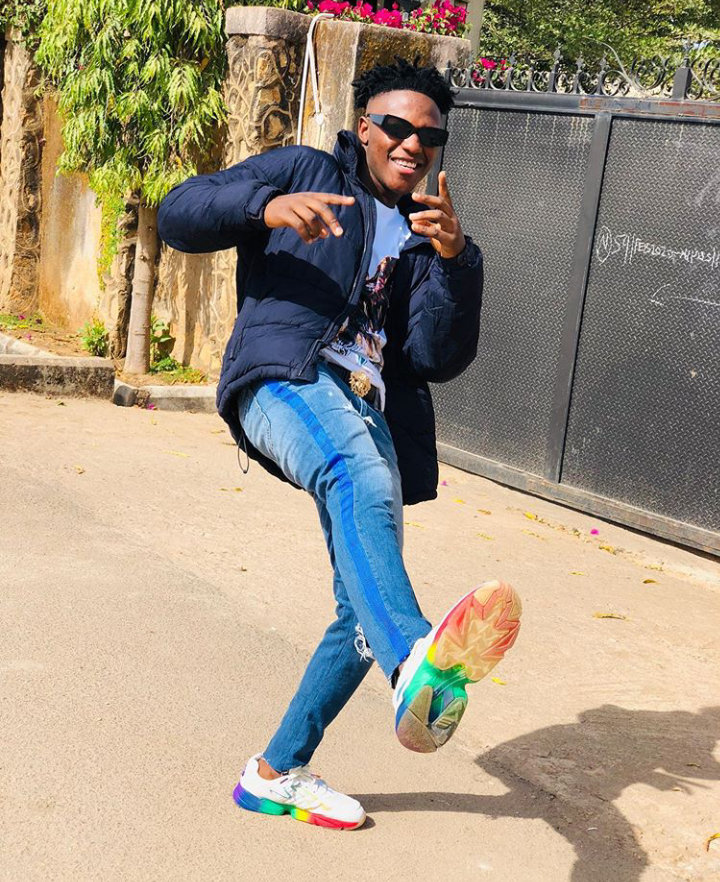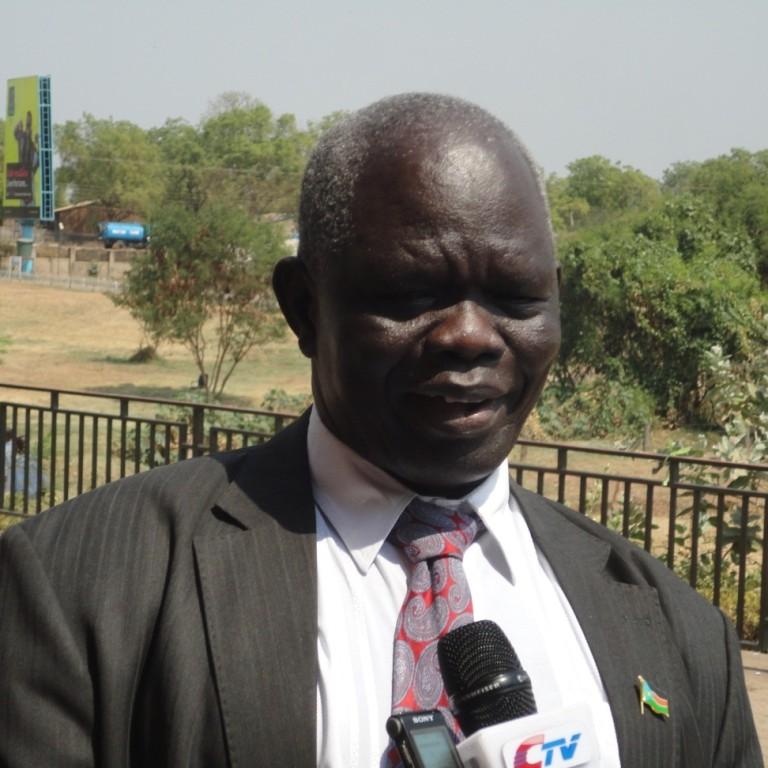#EndSARS: Not just a name or statistic. The tragedy of Rinji Bala

The widespread protests in Nigeria were motivated by real and often deeply personal experiences of police brutality. Here is one.

The late Rinji Uzziel Bala.
Before Rinji Uzziel Bala’s life was tragically cut short by the people charged with protecting it, he’d had big dreams. In his Instagram bio, the 20-year-old student of history and international relations had described himself as a “diplomat in the making”. He also had plans to set up a fashion line called “Pridys Collection” and to be the face of the brand. When he wasn’t working on those ambitions, Rinji loved to dance. He had a smile that lit up the room.
On the night of 12 May 2020, Rinji went for a walk in his neighbourhood with four friends, as they often did. Minutes into their walk, they encountered a local vigilante group of about twenty men who shouted at them to stop. Unsure of their intentions, Rinji and his friends started walking faster, leading their pursuers to start crying “barawo” (thief). Afraid of a mob attack, they ran. The men pursued and eventually caught Emmanuel, one of Rinji’s friends who recounted that night’s events to African Arguments.
Emmanuel insisted “ni ba barawo ba” (I am not a thief). The vigilantes descended on him regardless, hitting him with sticks and throwing stones at him. The men said that there had been accounts of thieves in the area. Emmanuel emptied his pockets to try to convince them that they were not thieves, but had just been enjoying an evening walk and that they had run because they were scared.
The men were about to start pummelling Emmanuel with stones again when soldiers arrived at the scene. The soldiers joined in assaulting Emmanuel, slapping him while holding him by the trousers. One of the soldiers had a gun in one hand and a bottle of Gulder in the other. Rinji, who had run ahead, was also caught by the soldiers. “When I joined Rinji, I told him there was nothing to worry about and it was a relief that the soldiers had come in time to save us from being lynched,” Emmanuel recounted.
The soldiers asked the mob if the friends had been caught stealing or had been in possession of any incriminating items. The response was “no”. Nonetheless, the security forces refused to let them go and insisted on calling the “authorities”. Rinji and Emmanuel were denied the right to call their parents.
While they were waiting, the friends who had escaped returned with others from the neighbourhood who all testified to their innocence. The soldiers promptly stripped, searched, and detained those men too. When more soldiers arrived, the whole group was handcuffed together and literally stacked on top of each other in the vehicle. In this way, they were driven to Sector One, the Headquarters of the Operation Safe Haven Taskforce, a military operation set up to maintain peace, curtail the activities of bandits, and secure the lives and properties of residents in the region.
Inside, the group was beaten with sticks, belts, and gora. The soldiers demanded they admit that they had stolen phones and that they were smoking weed. They refused. Eventually, they were let go. However, the soldiers started to chase them again, saying if any of them that were caught would be detained and beaten once more. The boys ran as fast as their injured feet could carry them until they reached the gate of Sector One. It was here that the policeman on guard duty cocked his gun, took aim, and shot Rinji.
“When we heard the shot, we ran again, splitting into groups. We couldn’t run for long because we had been beaten under our soles,” said Emmanuel. When the boys finally stopped running, they found a phone and called their parents who came for them. Together, they went back to find Rinji. When the group got there, there was nobody at the gate. Their friend was dead, a trail of blood following from where he had been shot to where he drew his last breath. He had spent those final moments trying to crawl away from Sector One.

“The whole time, I could clearly remember that someone got shot. But even then, I didn’t want to believe it was going to result in death. The whole encounter started from nothing altogether and I did not think it was going to go downhill so fast,” said Emmanuel.
The statement later released by Operation Safe Haven said that the taskforce had received a distress call at 10PM that night about the activities of armed cult members and that soldiers had been responding to that call. Two things stood out about their account: the men were not cultists and all the events happened before 9PM.
Inconsistences between an official statement and eyewitness accounts is not uncommon. After Nigerian soldiers opened fired on peaceful protesters at the Lekki tollgate on 20 October, for instance, the army simply denied it had been present at the scene despite countless witnesses, media reports, and live footage.
“The Nigerian Army has no business dealing with unarmed civilians in a democracy,” says Selzing, who joined the #EndSARS protests against police brutality in Jos. “The denial, however, is unsurprising as it is reflective of a systemic rot that shields security operatives who perpetrate acts of oppression and brutality, encouraged by a government that does not want to be held accountable.”
Emmanuel agrees and insists that the enormous protests, which have brought young people together across Nigeria, must continue to apply pressure. “The fight is not lost,” he says, despite the protests amid enforced curfews. “We will continue to draw awareness to the issue of police brutality in any way that we can.”
Emmanuel argues that justice for victims of police brutality should not be limited to just compensation or conviction but should also include a complete redefinition of the roles and responsibilities of security operatives. “Rinji did not die when the soldiers arrested us or when the policeman pulled the trigger,” he says. “Rinji died when the military had the power to arrest unarmed civilians without cause.”
Rinji’s sister, Nenrit agrees. “Rinji is gone,” she says. “We’re trying to piece our lives back together. It is an extremely difficult process, but the fight against police brutality is a ray of hope in these trying times. It is a fight for justice for Rinji and for every other victim of police brutality.”
With the temporary halt in demonstrations, some protesters in Jos such as Rinji’s friend Benedict are going house-to-house to sensitise people about the issue. “It is easy to forget that people who have lost their lives to police brutality aren’t just names or statistics,” he says. “It is easy to forget that they were flesh and blood with dreams and aspirations. They had hobbies and were once surrounded by family and friends whom they loved and who had loved them.
“For a lot of us, police brutality is not some alien, faraway concept. We’ve witnessed it first hand. We’ve seen it cut short the lives of people we love and we’ve seen it change the course of the lives of the people they’ve left behind.”






